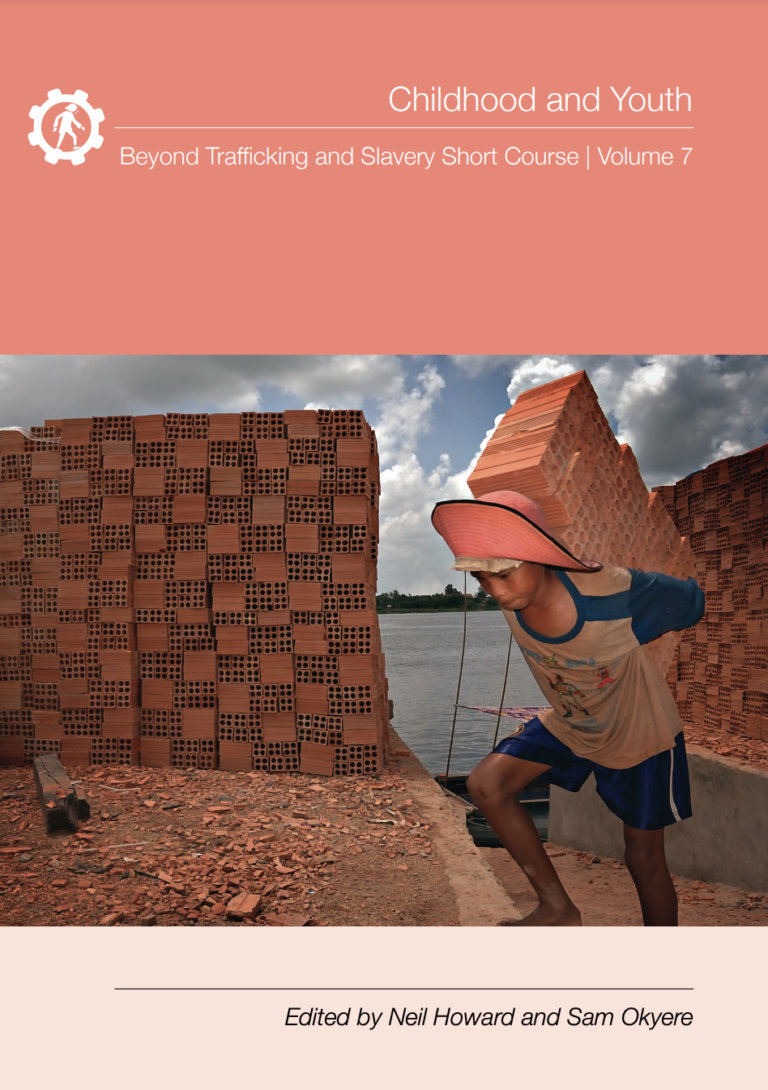Edited by Neil Howard and Sam Okyere.
This is the seventh volume of the series Beyond Trafficking and Slavery Short Course.
This volume, replete with contributions from world-renowned children’s rights academics and practitioners, argues that the dominant abolitionist discourse and its associated policy directives often impede the best interests and rights of the children they purport to ‘protect’ or ‘rescue’. This largely happens because the protections proposed are politically disengaged, fail to tackle the underlying causes of children’s insecurities, and often lack thorough understanding of the social, cultural, and economic circumstances surrounding young people’s work, mobility, and lives. The volume therefore advocates for an approach to securing child and youth welfare that is more nuanced, context specific, non-dogmatic, politically engaged, and takes young people’s own accounts seriously.

